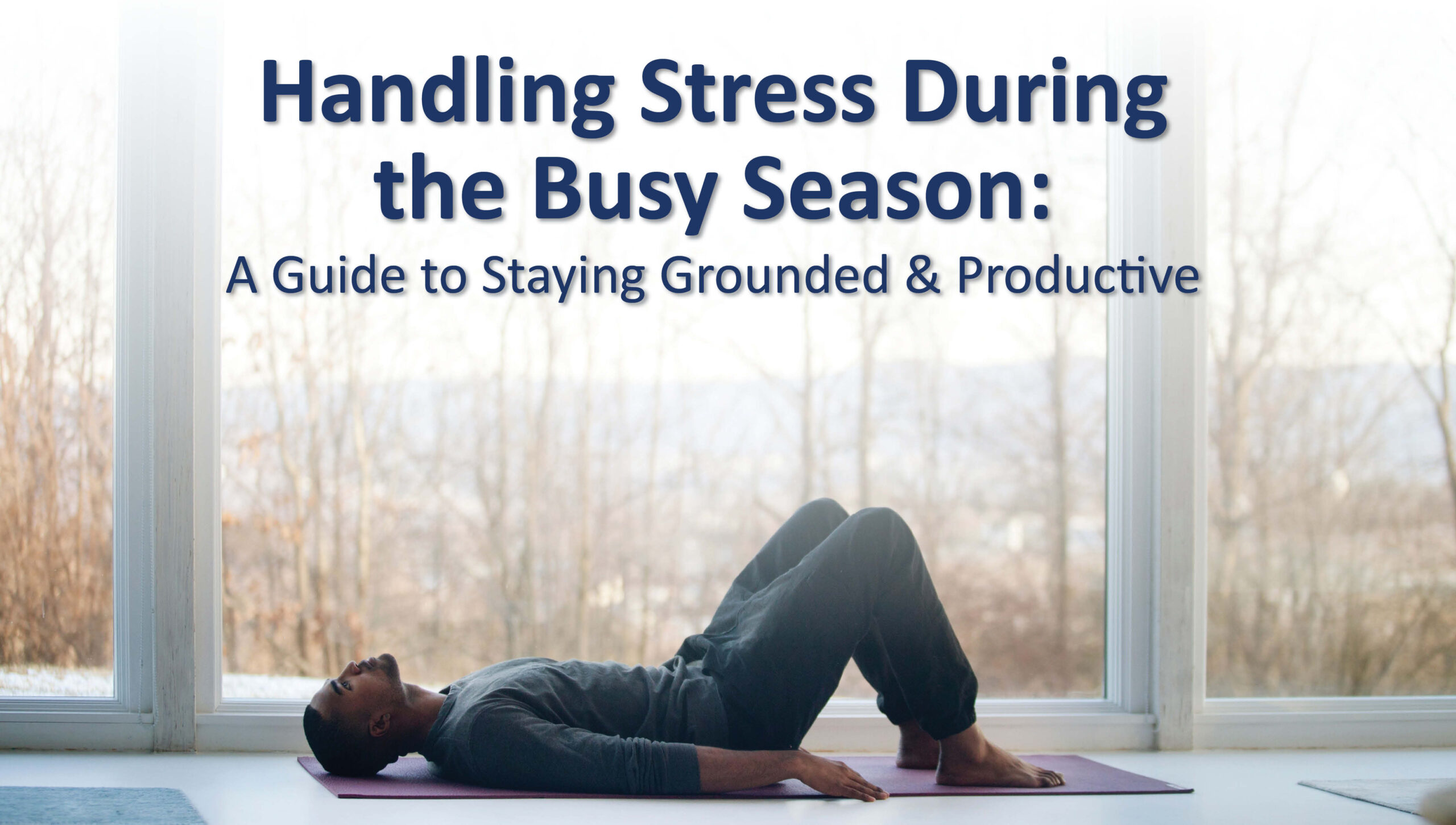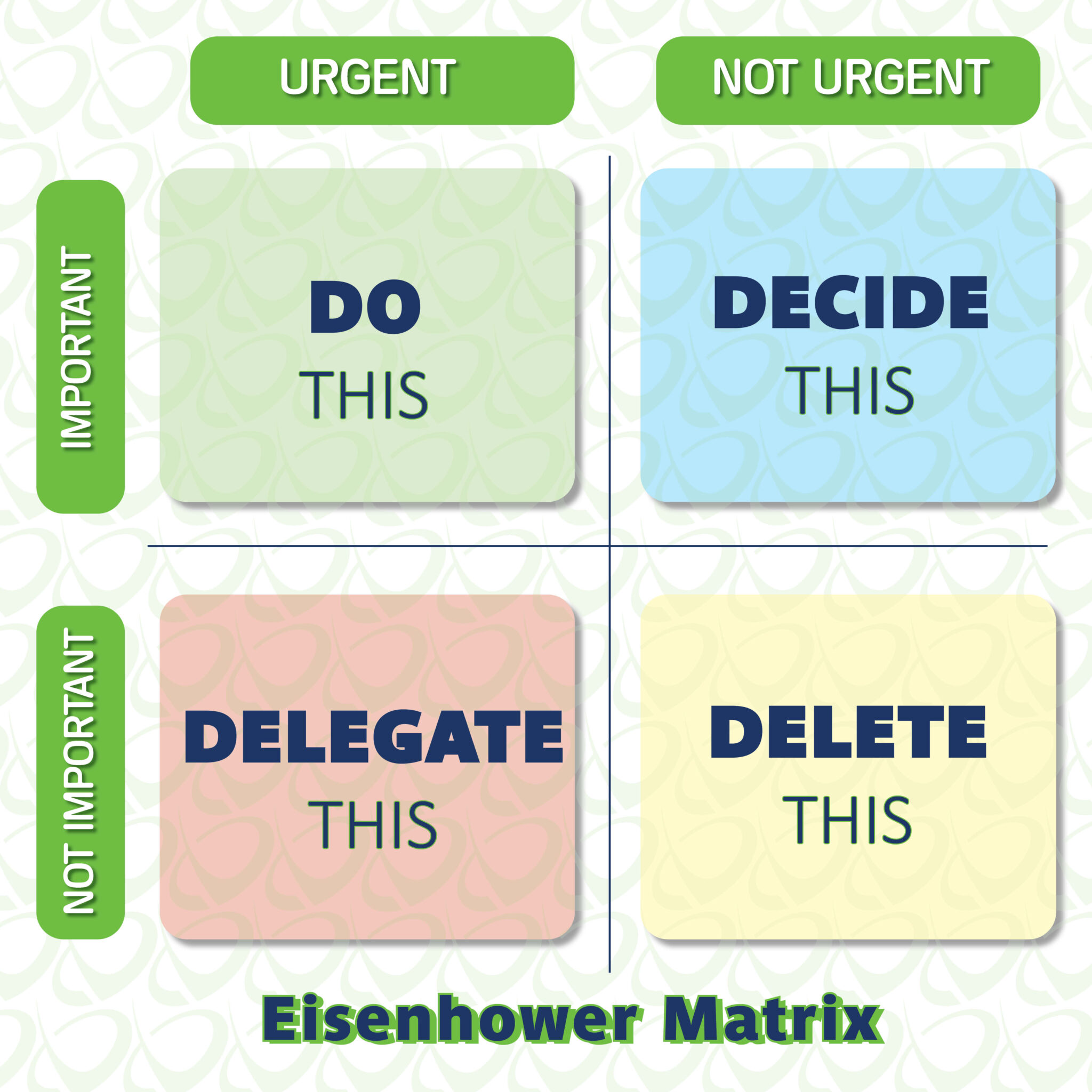Handling Stress During the Busy Season: A Guide to Staying Grounded and Productive

The busy season—whether it’s end-of-year deadlines, fiscal closeouts, or seasonal surges—can push even the most organized professionals to their limits. With packed calendars, mounting responsibilities, and constant demands, stress can quickly become overwhelming. But with the right strategies, it’s possible to stay focused, energized, and mentally balanced.
Here’s how to navigate the pressure with intention and resilience.
- Prioritize What Matters Most
When everything feels urgent, it’s crucial to step back and identify what truly matters. Start each day by listing your top three priorities. Ask yourself: What will move the needle? What can wait? What can be delegated?
The idea of prioritizing tasks can often feel obscure or overwhelming. Use tools like time-blocking or the Eisenhower Matrix to organize tasks by urgency and importance. And don’t be afraid to say no or renegotiate deadlines when needed—protecting your bandwidth is not a weakness, it’s a leadership skill.
Remember, being busy doesn’t always mean being productive. Focus on impact, not just activity. The more intentional you are with your time, the more productive you will feel, even in times when the to-do list keeps growing.

- Stay Active with Purposeful Activities
Movement is one of the most effective ways to combat stress. Even short bursts of physical activity can help reset your mood and boost energy. If your schedule is tight, try integrating movement into your day—take walking meetings, stretch between calls, or do a quick 10-minute workout before logging in. If you find yourself struggling to remember the importance of this, try blocking off the time in your calendar for small activity breaks as helpful reminders.
Beyond exercise, engaging in creative or social activities can also help. Whether it’s journaling, listening to music, or spending time with friends, these moments of joy and connection can provide a much-needed mental break.


- Support Your Health with Smart Choices
During high-stress periods, your body needs extra support. Prioritize foods that fuel your brain and stabilize your energy—think leafy greens, lean proteins, nuts, and berries. Stay hydrated and avoid the short-sighted desires for excess caffeine or sugar, which can spike anxiety and lead to crashes.
Supplements like magnesium, B-complex vitamins, and adaptogens (like ashwagandha or rhodiola) may help support stress resilience, but always consult a healthcare provider before adding anything new to your routine.
And don’t underestimate the power of sleep. Quality rest is essential for recovery, focus, and emotional regulation. If you are shorting yourself of sleep due to a packed schedule, you may be negatively impacting your productivity and creating more stress in the long run. If sleep is elusive, try winding down with calming teas, screen-free time, or guided relaxation.
- Practice Mindfulness to Stay Present
Mindfulness isn’t just meditation—it’s the practice of being fully present in the moment. When stress hits, it’s easy to spiral into future worries or past regrets. Mindfulness helps you anchor yourself in the now.
Try starting your day with a few minutes of deep breathing or a short, guided meditation. Throughout the day, pause to check in with yourself: How are you feeling? What do you need? Even mindful transitions—like stepping away from your desk for lunch or taking a few breaths before a meeting—can make a big difference.
Apps like Headspace, Calm, or Insight Timer offer quick, accessible tools to help you build mindfulness into your routine. Practicing mindfulness to stay present will position you to handle the task at hand and avoid getting bogged down.
Final Thoughts
Stress during the busy season is inevitable, but burnout doesn’t have to be. By staying active, supporting your health, practicing mindfulness, and prioritizing wisely, you can navigate the pressure with clarity and confidence.
At OneVoice Communications, we understand the demands of high-performance environments. Whether you’re managing IT infrastructure, supporting federal clients, or leading a team, your well-being matters. Let’s build a culture that values both productivity and peace of mind.
